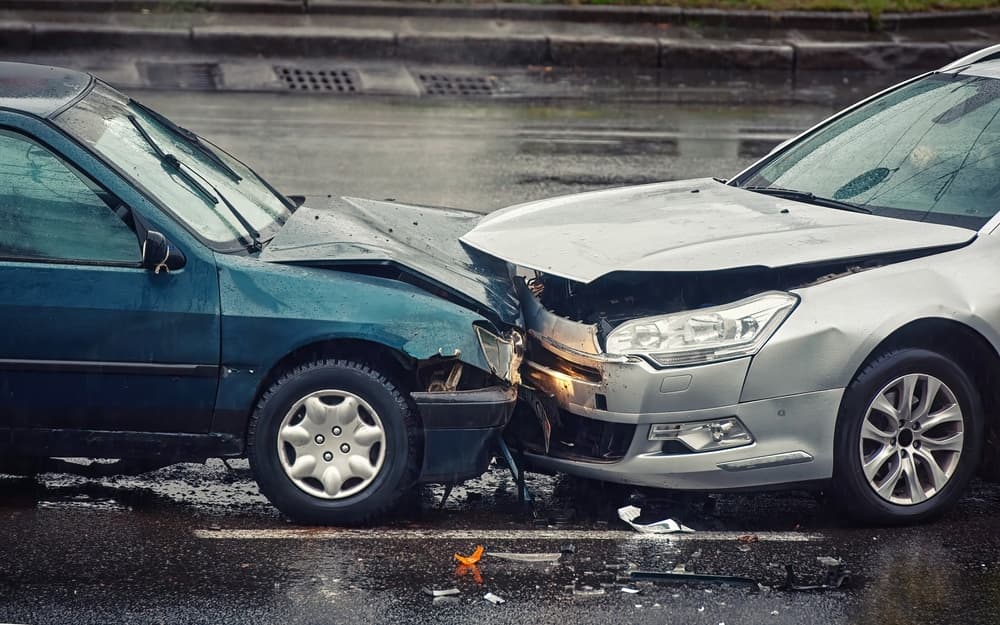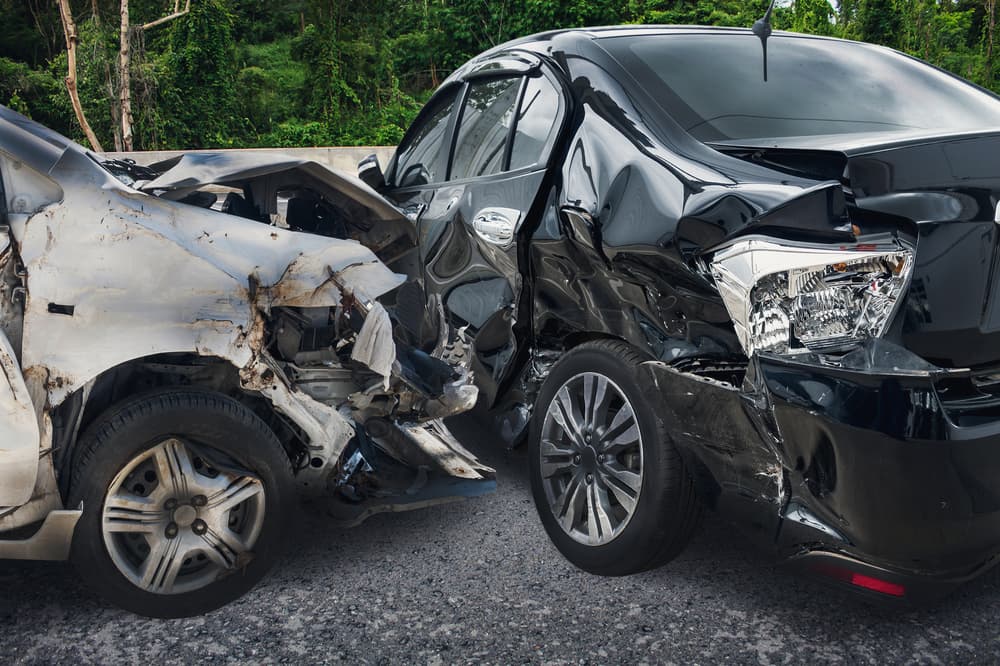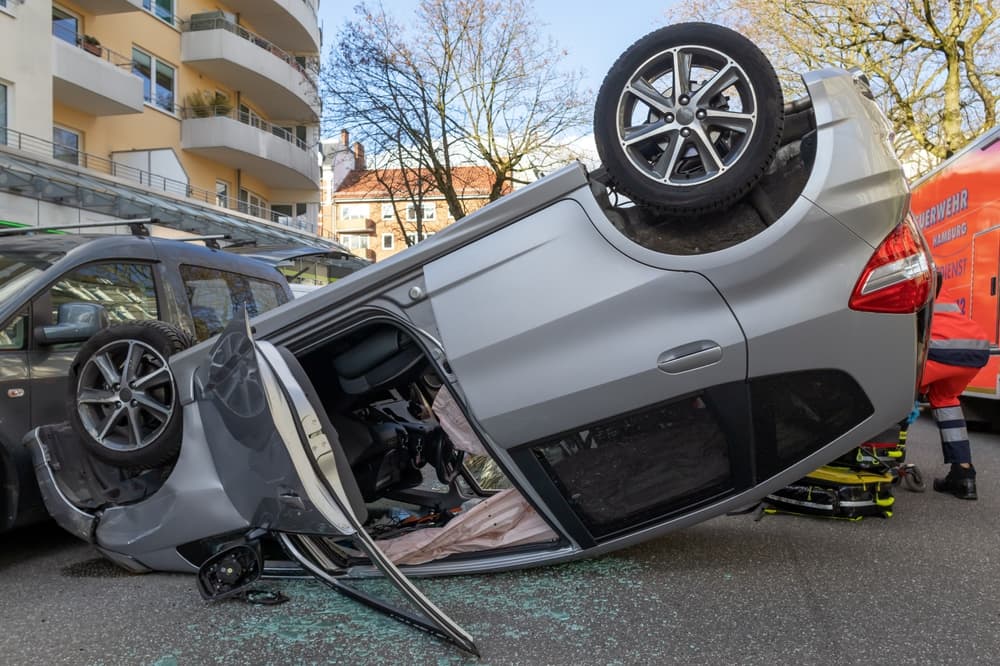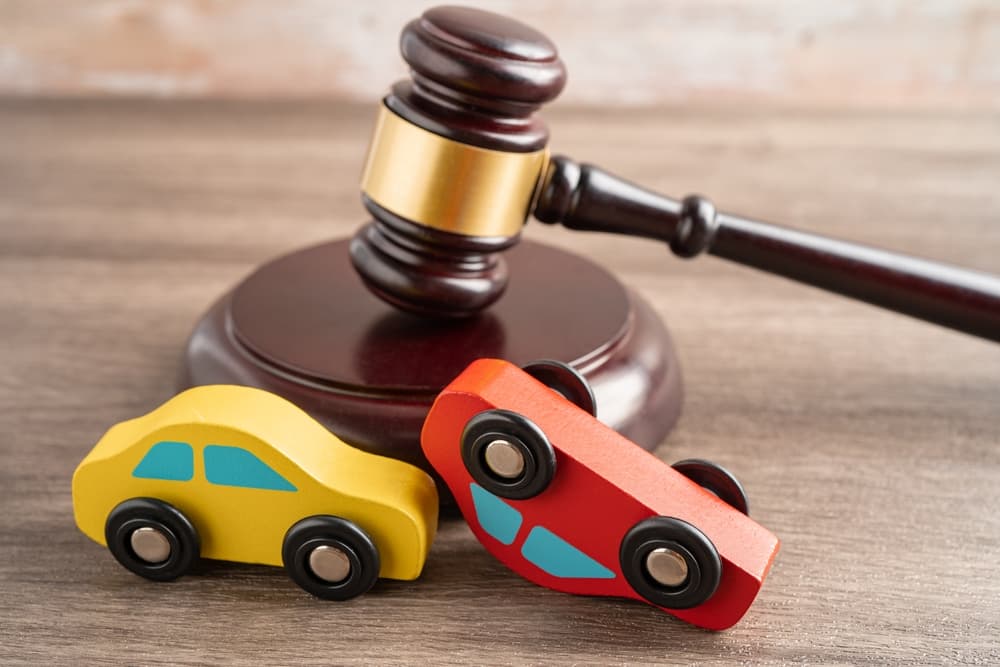
The many types of car accidents all have one thing in common: You can get total financial compensation for your injuries when you prove that someone else was negligent.
First, you must go through the insurance claims or lawsuit procedure, forcing you to fight for every dollar you get. Insurance companies will try to take advantage of you. You neutralize their advantage by hiring an experienced car accident lawyer who can stand up for your legal rights every step of the way.
Knowing the different types of car accidents can help you better understand fault and liability. After any of these collisions, consult an experienced car accident attorney who can guide you through the legal process and seek the compensation you deserve.
Your car accident lawyer will immediately investigate your accident, gathering evidence that can be used along the way to help prove your case. They will study your injuries to find a number you can seek in the claims process or through a lawsuit.
Even better, hiring a lawyer costs you no money from your own pocket.
Meanwhile, here is what you should know about the different types of car accidents that can cause you injury.
Rear-End Car Accidents
Rear-end accidents often occur at lower speeds when the trailing car driver does not see the front car stopped in front of them. The driver may be following too closely behind the front vehicle, not allowing them to stop in time to avoid a collision.
In a rear-end car accident, there is a presumption that the rear car driver was to blame for the accident, but it is not ironclad. Still, the front car driver is the one who is likely to receive financial compensation for the accident.
Rear-end crashes are the most common type of car accident, making up roughly one in every three car accidents. Even though these kinds of accidents have a relatively low fatality rate, they can still cause lasting injury.
Paradoxically, rear-end crashes may be the most dangerous at a lower speed. The reason is that the driver of the struck car can suffer whiplash from the accident.
Whiplash is a serious car accident injury that occurs when your head suddenly snaps forward while the rest of your body remains still. The effect can be serious injuries to your neck and back, and in severe cases, you can even suffer a brain injury. Roughly ten percent of people who sustain whiplash injuries will become fully disabled.
Sideswipe Crashes

Drivers may pay less attention than they should when changing lanes. They can veer to the side of their lane or outside of it entirely, and the result can be that one car sideswipes another.
The main risk of a sideswipe crash is not necessarily from the moment of impact. In this type of accident, there is little force between the colliding vehicles, but the main danger is that one or both cars will lose control.
The struck vehicle can end up across the roadway, causing another collision, or veer into oncoming traffic or off the road entirely. Sideswipe crashes can lead to multi-car accidents, mainly when they occur on the highway at a high speed.
In a sideswipe accident, the driver who was not correctly in their lane will appear liable because they did not have the right of way. However, like any car accident, this is merely a presumption, and the driver can overcome this if they have evidence that shows why the other may have been at fault.
Head-On Car Accidents
While every car accident is serious, head-on crashes are the most deadly type of traffic incident, where both drivers have the potential to suffer severe injuries or even death. Head-on car accidents comprise roughly two percent of the total accidents in the United States. However, they account for ten to five percent of car accident fatalities annually.
Head-on crashes are dangerous because both drivers receive tremendous force from the accident. If the driver is not wearing a seatbelt, the impact can even eject them from the vehicle. The driver and their front seat passenger can also be seriously injured when the airbags suddenly and violently deploy.
A head-on car accident should never happen. One car is where it should not be, either because the driver was distracted or they were being reckless. Head-on car accidents are a typical result of drunk driving because the intoxicated motorist is unable to read the road sign properly.
Your head-on car accident compensation is likely to be higher because the size of your settlement relates to the severity of your injuries.
T-Bone Crashes
T-bone car accidents often occur at intersections when one driver has failed to yield the right-of-way, as they were required to do by law. Usually, one driver has run a stop sign or red light. In other cases, a driver misjudged the intersection and the time they had to cross.
T-bone car crashes can cause serious injuries. For one driver, they have an impact similar to a head-on accident because the front of their car strikes the other. The other driver may get hit on the broad side of their vehicle. If someone sits in the car where the impact occurred, they can suffer severe injuries.
One of the significant challenges in a t-bone car accident is establishing who was at fault for the crash because it is not always immediately apparent which driver had the legal right of way.
Your best hope is that witnesses saw what happened and can testify that the other driver failed to yield when necessary. Otherwise, you can find yourself in a truth contest, and you will have to use different measures to establish the fault for the crash, such as working with an accident reconstruction expert. The expert can use math and science to conclude that the other driver failed to yield.
Rollover Accidents

Rollover crashes are among the most deadly types of crashes. One driver loses control of their car, either on their own or because of an accident with another vehicle, and the car will tip on its side or the roof. These accidents have the highest fatality rate of any crash, as one in every three drivers involved in a rollover crash will lose their lives.
Even if only one car was in a rollover accident, never assume you can blame the driver.
You can file a lawsuit against the following for their fault in a rollover accident:
- The driver of another car who caused the rollover by cutting off or striking the driver
- The manufacturer of the vehicle, when a defective part caused the rollover
- The local government, when the driver was swerving because of dangerous road conditions, and the government should have properly maintained the roadway
In rollover accidents, you must hire an experienced attorney to investigate the crash immediately to determine whether you can sue someone for what happened.
Multi-Vehicle Accidents
Multi-vehicle accidents are legally challenging for many reasons, and the most pressing concern is figuring out which driver was the cause of a multi-car crash.
In some cases, multiple drivers in the accident bear some portion of responsibility for the crash. Then, each injured driver is filing a claim against the same insurance policy, which may have limited coverage.
Drivers may also need to file a claim against their own underinsured motorist coverage to compensate for the damages' shortfall. Then, they will have to deal with two insurance companies, neither wanting to pay them the total amount.
Determining the Cause of Your Car Accident
You must learn who was responsible before you can file a compensation claim. Usually, you will file your claim or lawsuit against the other driver in the crash. In some cases, there can be additional or other potential defendants, and you should name everyone who bears some blame for the accident in a lawsuit.
Your attorney will investigate the accident to help determine the cause. They will gather evidence showing that someone else has a legal obligation to pay for your injuries.
Proving Liability for the Accident
No matter what type of car accident is involved, you must prove that the other driver was negligent in establishing your legal right to compensation. Otherwise, you will not get paid for your injuries.
In a car accident case, to demonstrate negligence you must prove:
- The other driver owed you a duty of care.
- They failed to uphold the duty of care because they did something that a reasonable driver would not have done (such as rear-ending a car from behind or not properly checking blindspots before they changed lanes).
- You suffered an injury.
- You would not have suffered an injury had it not been for the other driver's actions.
Your word alone is not enough to prove your case. The other driver may be telling their own story, or they can deny everything you said. The only way to persuade an insurance company that you must get paid is to bring evidence that proves what happened.
You are not best suited to investigate your car accident because you suffered an injury and do not know how to gather evidence. Hiring an experienced car accident lawyer can help you put your best foot forward legally.
Why You Need a Car Accident Lawyer

In every car accident case, you are dealing with an insurance company that cares only about its financial interests. These are for-profit businesses that make money by collecting premiums and underpaying claims.
Insurance companies can hurt you at many stages of the car accident claims process by:
- Dragging out your case because they take far too long to respond to your claim, making you more desperate for money
- Denying your claim entirely because they unreasonably believe that you did not present sufficient evidence of their policyholder's liability
- Blaming you for the accident, either entirely or partially, because they do not want to pay your claim (or pay you the total amount you are due)
- Making you paltry settlement offers that do not reflect the actual amount of your car accident damages
Insurance companies are notorious for trying to settle claims quickly and for as little money as possible. Without an attorney, they may offer you a settlement that doesn't fully compensate you for your injuries or damages.
A car accident lawyer can negotiate with the insurance company and fight for your deserved compensation.
How Much Will a Car Accident Attorney Cost Me?
Everyone wants to know how much they must pay for an experienced attorney. The good news is that the answer to that question is zero.
You do not pay for a lawyer when you hire them, and you do not pay their bills throughout your case. The books get settled if and when your case is successful, and only then will a lawyer get paid for their time on your case.
If you do not receive a settlement check or win your case before the jury, your lawyer does not get any payment. If you think you can save money by not hiring a lawyer - think again.
Insurance companies will emerge victorious from your case because they will have given you far less than you deserve and will get to pad their profits further at your expense.
Ultimately, hiring a lawyer after a car accident can provide peace of mind and increase your chances of receiving fair compensation for your injuries and losses.
They can help navigate the complex legal process, filing all necessary paperwork within the designated deadlines. They can also handle communication with insurance companies and other parties in the accident, saving you time and stress.
Contact a qualified personal injury attorney as soon as possible to guide you through the process and protect your rights.
